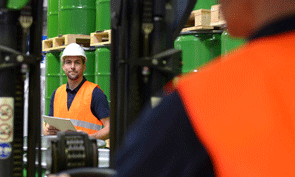
There is a huge amount of discussion throughout the global chemical and logistics industries about the extraordinary benefits digitization will bring. However, some of its leading proponents are quick to point out its limitations. Speaking at the Journal of Cargo’s annual Transpacific Maritime event in Long Beach this year, the CIO of MSC – the world’s second largest container shipping company – informed the assembled delegation that he believed that it was service levels that would ultimately dictate competitive advantage.
He went on to say, “There are so many issues to address in container shipping that technology itself will not be a competitive advantage.” And to reinforce the point he added: “Look at the airline industry – airlines do not compete on online booking, they compete on service levels, networks and prices.”
These issues were tackled by Cordstrap’s VP Germany, Elisabeth Hankeln at LogiChem Europe in Amsterdam last month. In her presentation, she highlighted that pure digital players can readily switch business models, the chemical industry has to ensure that its supply chain remains completely failsafe due to the hazardous nature of the materials.
And so, it is essential they place huge importance on cautious and well-considered change management. To download the white paper on the digital transformation in the chemical supply chain, click the above link.
To address the container shipping issues, MSC are spearheading the creation of a new association along with the world’s other leading container carriers: A.P. Moller – Maersk, CMA CGM, Hapag-Lloyd, and Ocean Network Express. The new association has revealed their intentions to promote digitization, standardization and interoperability in the container shipping industry.
A key part of standardization will be the adoption of best practice in how shipments are loaded and protected. The benefits of digitization will be utterly lost on customers receiving cargo that is damaged or delayed due to non-compliance. This is why it is so important to work with a cargo securing partner who can guarantee that the same exceptional quality of protection will apply across your global supply chain. Cordstrap have the world’s most extensive protection network supplying support, advice and training in over 50 countries worldwide. Our state-of-the-art protection solutions are fully CTU Code compliant and are approved and certified by the world’s leading - shipping regulators including Germanischer Lloyd, the International Maritime Organization, Mariterm AB and the American Association of Railroads (AAR).
It is only by working with a protection specialist with Cordstrap’s global reach, reputation and expertise, can you confidently address the issue of standardizing protection throughout your organization.
Please enter your details and press submit to download
For expert advice on cargo securing solutions contact us now
Contact nowCordstrap have specialists in over 50 global locations
Providing physical insurance to the world’s major industries
Delivering cargo protection solutions